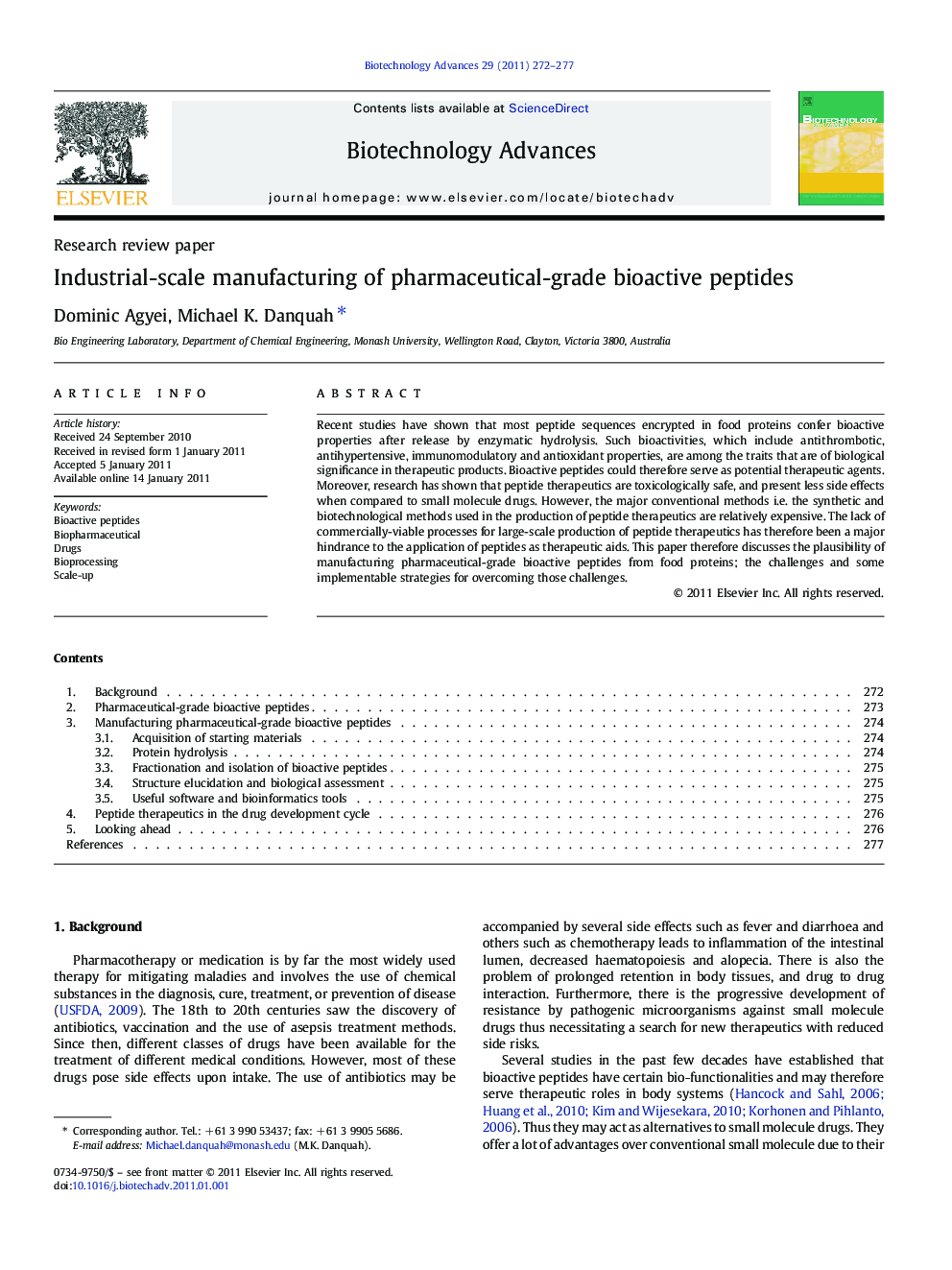| Article ID | Journal | Published Year | Pages | File Type |
|---|---|---|---|---|
| 14613 | Biotechnology Advances | 2011 | 6 Pages |
Recent studies have shown that most peptide sequences encrypted in food proteins confer bioactive properties after release by enzymatic hydrolysis. Such bioactivities, which include antithrombotic, antihypertensive, immunomodulatory and antioxidant properties, are among the traits that are of biological significance in therapeutic products. Bioactive peptides could therefore serve as potential therapeutic agents. Moreover, research has shown that peptide therapeutics are toxicologically safe, and present less side effects when compared to small molecule drugs. However, the major conventional methods i.e. the synthetic and biotechnological methods used in the production of peptide therapeutics are relatively expensive. The lack of commercially-viable processes for large-scale production of peptide therapeutics has therefore been a major hindrance to the application of peptides as therapeutic aids. This paper therefore discusses the plausibility of manufacturing pharmaceutical-grade bioactive peptides from food proteins; the challenges and some implementable strategies for overcoming those challenges.
